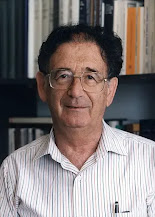First in the U.S., and later in her adopted home of England, Kugler became a devoted memory-keeper for the victims of the Holocaust, speaking indefatigably to schoolchildren, traveling with students and others to Nazi concentration camps, and offering herself as a living witness to the dangers of ethnic, religious, and racial hatred.
“Her story is both exceptional and symbolic of a larger movement of children who survived the Holocaust and who have sought to bear witness,” said Laura Hobson Faure, the chair of modern Jewish history at Université Paris 1 and the author of Who Will Rescue Us? The Story of the Jewish Children Who Fled to France and America During the Holocaust (Yale University Press: New Haven, CT, 2025). (See upcoming book review in this blog.) Through her book about her family’s Holocaust history, Shattered Crystals, her website, her many public speaking engagements with students in the UK, and through her participation in the March of the Living, Eve educated thousands of young people about the history and lessons of the Holocaust. In 2019, Eve was a recipient of the British Empire Medal.
After World War II broke out in 1939, Kugler’s father was arrested in France because of his German nationality. With no means of supporting her daughters, her mother entrusted Kugler and her sisters to the Children’s Aid Society - the Oeuvre de Secours aux Enfants (OSE) - which put them in several children’s homes while employing her as a cook. In 1941, the U.S. government granted permission for a group of refugee children to enter the country. The U.S. Committee for the Care of European Children, working with the American Friends Service Committee, a Quaker aid group, began arranging transports with the help of OSE. In total, about 320 refugee children were evacuated from France in 1941-1942 via Spain and Portugal to the U.S., said Hobson Faure. Kugler and her sister were on the second transport.
Kugler said that she remembered nothing of the journey through France and Spain and across the Atlantic Ocean, and that any detailed memories of her childhood began with her arrival in the U.S. The refugee children wore lanyards with numbered cards - Kugler was Number 24 - and were placed with foster families. In the following years, Kugler lived in three homes, her sister in four. “They were difficult and lonely years for me,” she wrote in a memoir, Shattered Crystals (C.I.S. Publishers: Lakewood, NJ, 1997), co-authored with her mother Mia Amalia Kanner.
“Emotionally damaged and traumatized by the Holocaust, I came to America with a hidden disability,” she continued. “With the best will in the world, the members of my foster families had no way of grasping the reasons for my deep unhappiness. How could they comprehend my feelings of isolation, my realization that I was different from other children. How could I explain to them my awful, never-ending feelings of guilt at having been saved at the expense of others, those unknown children who, the day before departure, became too ill to travel?”
In her 40s, Kugler begin to address what she described as a form of “amnesia” surrounding the traumatic events of her childhood. The experience of writing her memoir with her mother allowed her to better understand her family’s story. She started speaking at schools, synagogues, and other venues, committing herself to the preservation of the memory of the Holocaust. Kugler’s death came one day before she was scheduled to participate in the International March of the Living (MOTL), an annual gathering at Auschwitz, the Nazi death camp in occupied Poland. “I feel grateful and somewhat guilty,” she once told an interviewer, “for having survived.”
MOTL Global CEO Scott Saunders said, “Eve had been a part of the March of the Living UK since the very beginning. She was a wonderful, inspiring lady who taught all of us the resilience and positivity of life. She was my friend, my mentor and i and the whole March of the Living family will miss her.” Eve’s legacy will live on in the hearts of minds of the thousands of young people who were privileged to hear her testimony first hand on the March of the Living and in many other educational programs and settings. May her memory always be for a blessing.
Read the May 7, 2025 Washington Post obituary.
Read the April 23, 2025 MOTL article.
(Image Credit: Sam Churchill, motl.org.)








